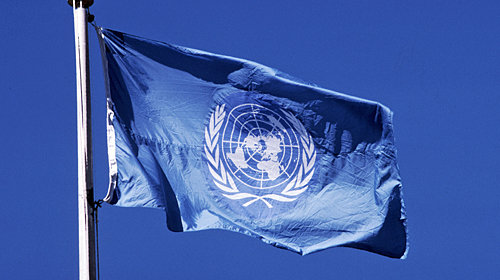
Yesterday the United States gave the U.N. Human Rights Committee its one year follow-up report on progress made to implement four priority recommendations made by the committee a year ago. The independent human rights experts had reviewed the United States' compliance with a major human rights treaty, the International Covenant on Civil and Political Rights (ICCPR). They found the U.S. coming up short in many areas, including accountability for torture, privacy and surveillance, Guantánamo, and gun violence.
Yesterday’s disappointing does provide some information on Justice Department investigations regarding police misconduct, including the recent Ferguson report. But, there was nothing on accountability measures taken in the aftermath of the release of the on the CIA torture program. The need for Attorney General Eric Holder to appoint a special prosecutor remains as glaring as ever.
The submission notes that the Senate report’s 500-page executive summary was “declassified with minimal redactions to protect national security,” but it failed to commit to release the entire report (which the ACLU is currently fighting for in a FOIA lawsuit). And while the submission states that the U.S. “supports transparency and has taken steps to ensure that it never resorts to the use of those [harsh interrogation] techniques again,” there is no mention of any concrete actions taken to criminally investigate CIA torture, especially in light of the new information made public in the report about the brutality of the CIA’s methods, and its lies to Congress, the media, and the public about its torture program.
Under the ICCPR and the , the U.S. has an obligation to effectively, independently, and impartially investigate all cases of unlawful killing or torture, as well as arbitrary detention or enforced disappearance. The U.S. also has an international legal obligation to appropriately prosecute perpetrators – including high-level policymakers.
The U.S. submission mentions the investigation by Justice Department prosecutor John Durham, which he closed in 2012 without any charges being filed. But, the submission fails to provide detailed information on the precise scope of Durham’s mandate. We remain concerned that the investigation may have focused on instances in which interrogators overstepped limits set by senior officials, rather than on the culpability of senior officials themselves.
It also remains unclear whether investigators interviewed any prisoners who were subjected to the CIA torture program. During the November 2014 of the United States before the U.N. Committee Against Torture in Geneva, the committee raised concerns, based on and accounts from , indicating that Durham had never interviewed any detainees. The U.S. delegation responded that it had interviewed 96 persons as part of the investigation, but it did not indicate whether any of the prisoners who were subjected to abuse and torture were amongst those interviewed.
A comprehensive criminal investigation by the U.S. government would dissuade future government officials from ordering or using torture and abuse. Failure to conduct an independent criminal investigation not only flouts international law but it also undermines America’s ability to advocate for human rights abroad and compromises Americans’ faith in the rule of law at home.
The ACLU and other have until May 1st to submit “shadow reports” to the Human Rights Committee, which will subsequently assess and grade U.S. implementation of the key priority recommendations. The Obama administration can still avoid a low grade by responding to domestic and calls to appoint a special prosecutor to conduct a comprehensive criminal investigation of the tactics described in the Senate torture report, including all acts authorizing or ordering acts of torture and other abuses and provide redress to victims of torture.

